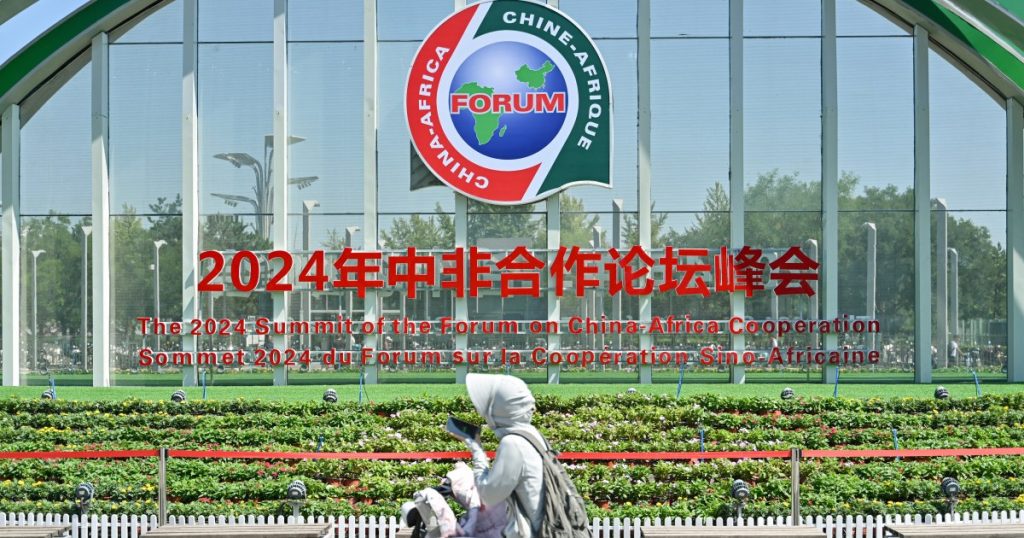African leaders are currently in China for a high-level meeting with President Xi Jinping amid China’s efforts to expand its influence on the continent. The China-Africa summit, taking place from September 4 to 6, will involve discussions on policies and cooperation agreements that will shape the relations between China and African countries for the coming years. Past agreements from similar summits have granted China access to Africa’s raw material markets and provided investment opportunities for African nations.
The summit, officially known as the Forum on China-Africa Cooperation (FOCAC), will focus on themes such as industrialization, agricultural advancements, security, and cooperation related to China’s Belt and Road initiative. China aims to strengthen its ties with African countries and showcase its growing role on the global stage. This summit is an opportunity for Beijing to flaunt its diplomatic influence, particularly at the United Nations, where African allies can play a significant role in influencing decisions.
China is expected to use the summit to attract African leaders with more investment opportunities, access to crucial minerals like lithium and copper, and the promotion of China-made products, especially renewable energy technologies. African countries, on the other hand, will seek to clarify unfulfilled pledges from past summits and foster more cooperation to increase revenue and job opportunities within their borders. Bilateral agreements between China and individual African nations will be a focal point during the summit.
Over 50 heads of state from African countries, along with ministerial delegates, are expected to attend the summit. Eswatini, the only African nation with no ties to China due to its diplomatic relations with Taiwan, is likely to be the only nation absent from the gathering. In addition to African leaders, UN Secretary-General Antonio Guterres and various international and regional organizations will also participate in the summit as observers.
China is Africa’s largest trade partner and creditor, with significant investments in various African countries. These investments typically take the form of grants, credit, and loans for infrastructural projects. Chinese financing in Africa has faced criticism, particularly concerning environmental issues such as illegal logging and unsustainable practices. China has also been accused of engaging in “debt diplomacy,” where countries struggle to repay significant loans, allowing China to seize assets. However, China has denied these allegations, stating that its investments aim to promote development in Africa rather than entrap nations in debt.
In conclusion, the China-Africa summit represents a crucial diplomatic opportunity for China to strengthen its economic and political ties with African countries. While China’s investments in Africa have been met with resistance and criticism in various areas, the summit provides a platform for discussions on improving cooperation and addressing challenges for sustainable development. African leaders and Chinese officials will engage in discussions on industrialization, agricultural advancements, and security cooperation, setting the stage for future collaboration between China and Africa.


